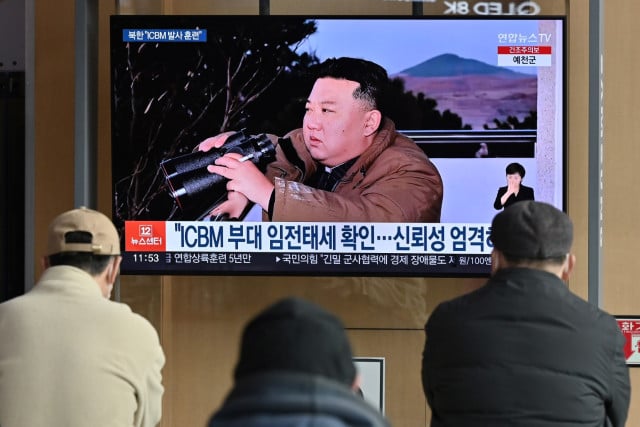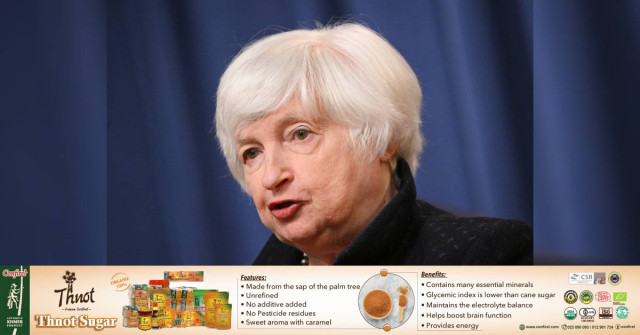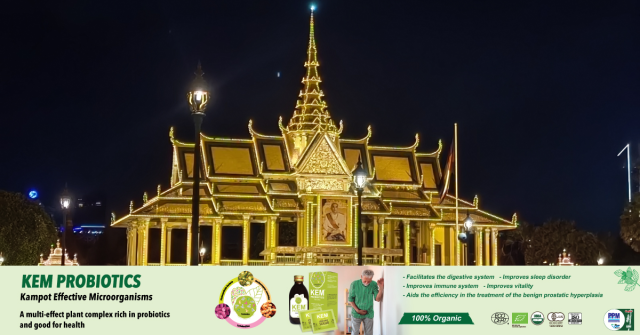Kim Jong Un: A Serious Human Rights Abuser

- By So Channtha
- May 28, 2023 4:52 PM
The contemporary human rights situation in North Korea is one of the most repressive and dire in the world. The totalitarian government of Kim Jong Un violates the fundamental rights and freedoms of its citizens, such as freedom of expression, religion, movement, and association, and subjects them to threats of execution, imprisonment, enforced disappearance, and forced labour. The government also does not protect the rights of women, children, and people with disabilities and prioritizes weapons development over economic and social rights. In addition, the Covid-19 pandemic and natural disasters have worsened the already severe food crisis and the country's isolation. At the same time, the government has rejected international aid and engagement.
The North Korean government justifies its human rights abuses by claiming that they are necessary to protect the country from outside threats. However, the reality is that the government is simply trying to keep its power and control over the population.
Some critical points of serious human rights violations in North Korea must be examined. The first is the political repression and persecution the North Korean government imposes on its citizens. According to Human Rights Watch, North Korea uses secretive prison camps where perceived opponents of the regime are sent to face torture, starvation, and forced labour. The government also uses fear of collective punishment to silence dissent and bans any form of political opposition, independent media, civil society, or trade unions. The UN Commission of Inquiry found that the government committed gross, systematic, and widespread rights abuses, including extermination, murder, enslavement, torture, rape, and other forms of sexual violence that amount to crimes against humanity. The second is the restriction on freedom of movement and information that the North Korean government enforces on its citizens. The government prohibits citizens from travelling within or outside the country without prior approval and punishes those who attempt to do so with imprisonment or death. The government also jams mobile phone services at the border and arrests people who communicate with outsiders. The Covid-19 pandemic has further tightened these restrictions, as the government has closed its borders and imposed strict lockdown measures that have disrupted food distribution and trade within the country. The government also denies its citizens access to independent sources of information and censors all forms of media and expression. The third is the violation of economic, social, and cultural rights that the North Korean government perpetrates on its citizens. The government systematically extracts forced, unpaid labour from its citizens to build infrastructure and public works projects. The government also does not provide its citizens with adequate food, health care, education, and housing. The Covid-19 pandemic and natural disasters have exacerbated the already chronic food insecurity and malnutrition in North Korea. According to some research, more than 40 per cent of North Koreans are malnourished, and more than 10 million people need humanitarian aid. However, the government has refused to accept international assistance or cooperate with humanitarian agencies due to its mistrust of outsiders and fear of exposing its human rights violations.
The fourth is the discrimination and violence against women, children, and people with disabilities that the North Korean government inflicts on its citizens. Women face pervasive gender inequality and sexual violence in North Korea. According to Human Rights Watch, women forcibly repatriated from China face invasive body searches and forced abortions by North Korean authorities. Women also suffer from domestic violence, sexual harassment, trafficking, and forced marriage without legal protection or recourse. Children face severe deprivation of their rights to survival, development, safety, and participation in North Korea. Due to political repression or migration, children are subjected to indoctrination, forced labour, corporal punishment, and separation from their families. People with disabilities face stigma, discrimination, neglect, and abuse in North Korea. People with disabilities are often excluded from education, health care, employment, and social services due to limited accessibility and resources.
The human rights situation in North Korea is a serious problem that needs to be addressed as soon as possible. The international community and the N. Korean people are the key actors in addressing these issues. The international community must continue to pressure the North Korean government to improve its human rights record by allowing freedom of speech, religion, and assembly. It also needs to end its human rights abuses. In addition, the international community should provide humanitarian aid to the country. This aid can help to alleviate the suffering of the North Korean people and can also help to build trust between the international community and the North Korean government. Another critical action that can be taken is to promote human rights education to the citizen of North Korea. This education can help to raise awareness of human rights issues among the North Korean people and can also help to build a culture of respect for human rights.
In conclusion, many international organizations and governments regard Kim Jong Un as a severe human rights violator. The contemporary human rights situation in North Korea is extremely bleak and alarming. It is a complex problem, but it can be solved. With international pressure and cooperation, the North Korean government can be held accountable for its human rights abuses, and the people of North Korea can live in freedom and dignity.
So Channtha is a lecturer of politics and international relations















